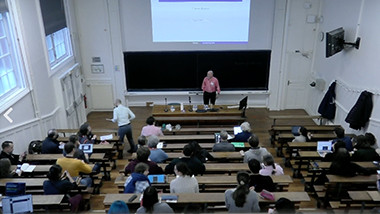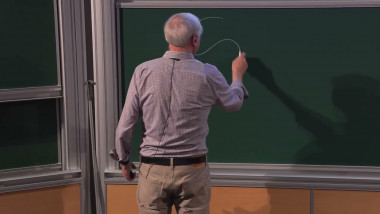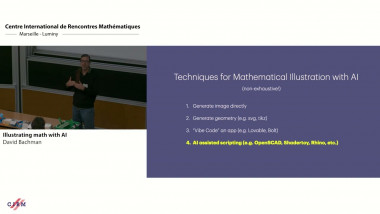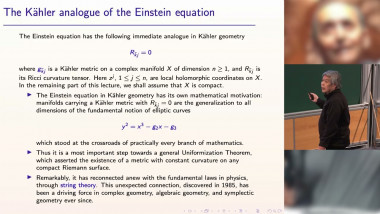Appears in collection : 2025 IHES Summer School – Discrete Subgroups of Lie Groups : Dynamics, Actions, Rigidity
Anosov representations form an open set of homomorphisms of a discrete hyperbolic group into a semi-simple Lie group G. Labourie introduced them in a dynamical language, requiring that a section of an associate flat bundle should provide a hyperbolic set for some flow. Later, several equivalent characterisations of Anosov representations that do not involve the dynamics of a flow were identified, often with the goal of producing geometric structures associated to these representations in the form of compact quotients of open subsets of flag manifolds.
This course will present recent work with B. Delarue and A. Sanders that uses (non-compact) quotients of open subsets of appropriate homogeneous spaces (not flag manifolds) for the Lie group G, equipped with a flow that commutes with the action of G. This quotient produces a locally homogeneous flow with uniformly hyperbolic dynamics (Smale's axiom A). This approach allows for the use of modern analytic techniques of smooth dynamics that were not applicable to Anosov representations so far.
The first lectures will focus on the case of projective Anosov representations into SL(d,R). After introducing Anosov representations in this setting, we will describe the construction of the locally homogeneous flow and its dynamical properties. In a second part of the course, we will study the case of a general semi-simple Lie group G (and arbitrary flag manifolds used to define Anosov representations). We will see how the linear algebra of the SL(d,R) case can be replaced with differential geometric notions in the general situation. Several examples will be discussed, with an emphasis on those that can be described as some non-Riemannian geodesic flow.
The course will use notions from Lie theory, dynamical systems, differential geometry and a touch of geometric group theory. The necessary background on these subjects will be kept to a minimum.
















